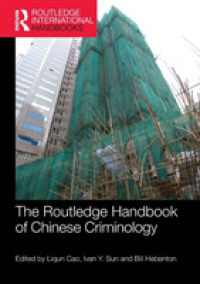Full Description
This work, a partial history of Iranian laws between 1906 and 2020, demonstrates that the main obstacle to improving the legal status of non-Muslims in Muslim contexts is the fiqhī opinions, which are mistakenly regarded as an integral part of the Islamic faith. It aims to clarify why and how Islamic Shiite rulings about non-Muslims shifted to the Iranian laws and how it is possible to improve the legal status of the Iranian non-Muslims under the Islamic government.
Contents
Contents
Preface
Acknowledgements
Abbreviations
A Note on Transliterations and Dates
Chronology
Introduction
1 The Status of Non-Muslims in the Shiite Imāmī School
1 Introduction
2 Sources and Method
3 The Quran and Non-Muslims
4 Legal Shiite Hadiths on Non-Muslims
5 Shiite Fiqh and Non-Muslims
6 Conclusion
2 The Context of Iranian Constitutionalism
1 The Political Context
2 The Socio-Cultural Context
3 The Constitutional Revolution
4 Non-Muslims in Iranian Society
5 Conclusion
3 The Codification of Laws and Regulations (1906-1979)
1 The 1906 Constitution
2 Modifications in the Pahlavi Period (1925-79)
3 The Penal and Civil Codes
4 Conclusion
4 The Codification of Laws and Regulations (1979-2020)
1 Introduction
2 The Formation of the 1979 Constitution
3 The Penal Code
4 The Civil Code
5 Extra Regulations
6 Conclusion
5 Towards a New Ijtihād
1 Conclusion
Index








